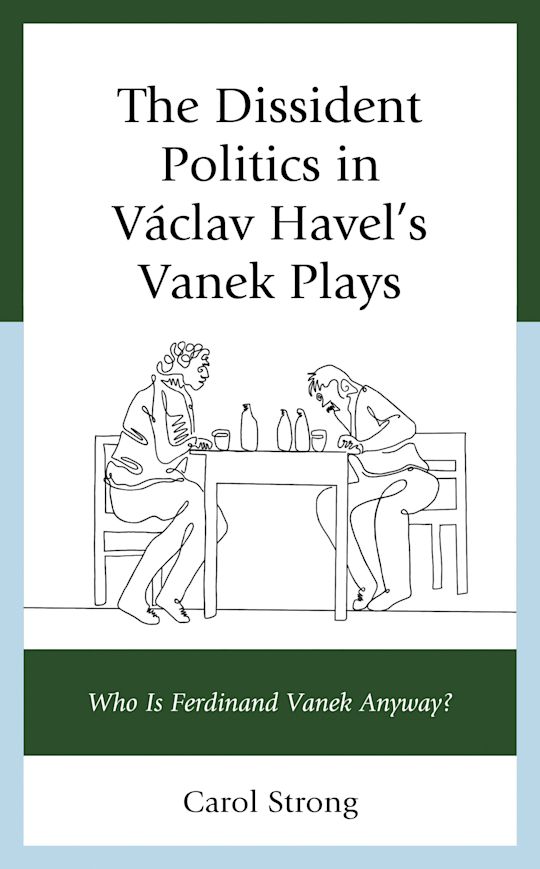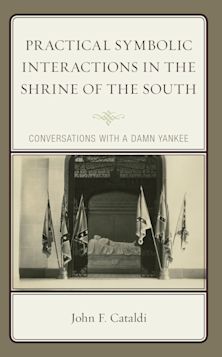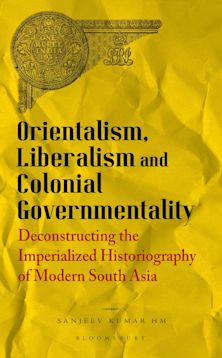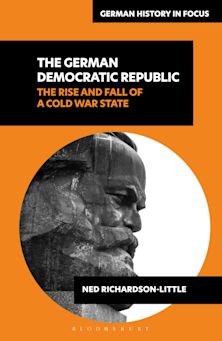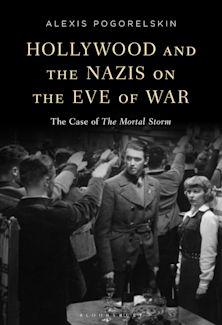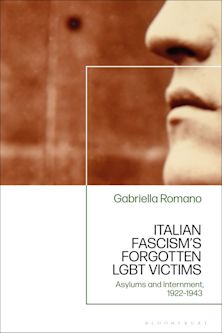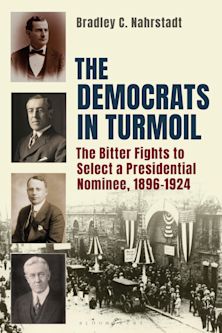- Home
- ACADEMIC
- Politics & International Relations
- Political History
- The Dissident Politics in Václav Havel’s Vanek Plays
The Dissident Politics in Václav Havel’s Vanek Plays
Who Is Ferdinand Vanek Anyway?
The Dissident Politics in Václav Havel’s Vanek Plays
Who Is Ferdinand Vanek Anyway?
You must sign in to add this item to your wishlist. Please sign in or create an account
Description
The Dissident Politics in Václav Havel’s Vanek Plays: Who Is Ferdinand Vanek Anyway focuses on Ferdinand Vanek, a semi-autobiographical character created by Václav Havel and featured in a series of nine plays written by Havel himself and three other dissident writers – Pavel Kohout, Pavel Landovský, and Jirí Dienstbier. By exploring the ‘Vanek experience,’ Carol Strong details a multi-episodic, absurdist journey that provides an ‘insider’s view’ of the challenges facing those daring enough to question the status quo, a view that remains relevant today. Strong’s contention is that the lines found in these plays served as a ‘secret language’ of dissent in Cold War Czechoslovakia, which called the citizenry to contemplate the need for societal reform. As the plays were written at a time when the work of Havel and other dissidents were banned, the plays were never performed publicly, but through clandestine living room performances and the sharing of samizdat scripts the plays found an audience. Select phrases were indeed whispered throughout underground networks and helped forge a sense of oppositional solidarity among potential activists. Strong’s argument is that the ‘Vanek experience’ metaphorically highlights how official power mechanisms are among the least insidious forms of societal power, as the state must follow predictable patterns of legal jurisprudence. By contrast, non-governmental forms of power – as exercised by one’s fellow citizens through informal social channels – can challenge oppositional actors more because of the personal tone they adopt. Using this approach, Strong presents a timelessly relevant critique of modern society with its consumerist / conformist tendencies.
Table of Contents
Chapter 1: Act I, Scene I Havel's Vanek Trilogy: The Plight of a Social Dissident
Chapter 2: Act I, Scene II Havel's Vanek Play Protest: Locating the Spark of Social Change
Chapter 3: Act II, Scene 1 And Now, A Word from Pavel Kohout: An Alternative Face of Vanek
Chapter 4: Act II, Scene II And Now, A Word from Pavel Landovský: Yet Another Face of Vanek
Chapter 5: Part II, Act III And Now, A Word from Jirí Dienstbier: A Vanek Sequel
Chapter 6: Post-Performance Panel Discussion Meet the Authors: Confronting the Many Faces of Vanek
Conclusion: Who is Ferdinand Vanek Anyway?
Product details
| Published | 05 Sep 2023 |
|---|---|
| Format | Ebook (Epub & Mobi) |
| Edition | 1st |
| Extent | 336 |
| ISBN | 9781793650214 |
| Imprint | Lexington Books |
| Illustrations | 1 b/w photos; |
| Series | Politics, Literature, & Film |
| Publisher | Bloomsbury Publishing |
About the contributors
Reviews
-
Strong’s original and well-researched book offers a comprehensive examination of the Czech literary character Ferdinand Vanek and his nine iterations in the period 1975–1985. First created by Václav Havel as his alter ego in the trilogy Audience, Vernisáž, and Protest, Vanek takes on a new life in the sequel plays of Havel’s fellow dissidents, Pavel Kohout, Pavel Landovský, and Jirí Dienstbier. The study concludes with a virtual post-production panel discussion on the many faces of Vanek. To the question “Who is Ferdinand Vanek?”—asked at the opening of the book—Strong provides many insightful answers. Vanek was not conceived as merely literary representation of Havel’s dissident experiences, but rather as a dramatic principle able to prompt others to reveal their innermost thoughts. As an embodiment of the linkage between literature and politics, Vanek serves as an inspirator of social reform in a politically repressive environment, hence, his enduring legacy. Recommended. Lower-division undergraduates through faculty; general readers.
Choice Reviews
-
In this thought-provoking and well-researched book, written partly in a quasi-theatrical format, Carol Strong demonstrates how this intersection of politics and literature – focusing on Havel and three other leading Czechoslovak dissidents (Pavel Kohout, Pavel Landovský and Jirí Dienstbier) - played a key role in the eventual downfall of the Communist Party in 1989. And in better understanding Havel’s creation Ferdinand Vanek – who was based on Havel himself and was subsequently adopted by several other writers - we understand better the complexities of this impressive man and his fellow-dissidents, as well as the power, significance and universality of absurdist theater.
Leslie Holmes, University of Melbourne
-
“The Dissident Politics in Václav Havel’s Vanek Plays: Who Is Ferdinand Vanek Anyway?by Carol Strong maps out Ferdinand Vanek's import as both a concretely realized dramatic character in Havel's plays as well as a dramatic principle deployed by other dissident writers who were Havel's contemporaries. It also explores how Vanek continues to speak to us in the post-1989 globalized world. In an era where dissent is (still) endemic, this study of the Vanek plays as "existential encounters" may well serve as a source of wisdom and inspiration for dissidents, both actual and would-be, in the here and now.“
David S. Danaher, University of Wisconsin-Madison
-
“Carol Strong’s The Dissident Politics in Václav Havel’s Vanek Plays: Who Is Ferdinand Vanek Anyway?, has opened the door to the world of Ferdinand Vanek; a fragile, shy, but in a way determined and stubborn intellectual confronted with the surrounding political realities.
This book is complex, marvelous, and enriching. Its main point is that Ferdinand Vanek was more than a theatrical projection of Havel’s inner self, a dramatic figure that can help us to get a deeper insight of his personality. We are reminded by Strong that there are three other authors here, too, who contributed substantially to the Vanek's theatrical etudes, offering the portraits of Vanek not from inside, but as seen by the other people: Havel's friends and teammates.
The message sent out by all four authors of Vanek plays, Václav Havel, Pavel Kohout, Pavel Landovský and Jirí Dienstbier, is universal. It speaks to every reader, no matter how far he or she is from that place and time, where and when this message originated. I enjoyed reading it tremendously. So, enjoy it, too, observing the actions and reflections of Ferdinand Vanek with an open mind and generous imagination.”Martin Palouš, Florida International University
-
“The Czech people hold great admiration for Václav Havel, the playwright and former president. Furthermore, we hold scholars who analyze Havel's work in high regard, as they help to disseminate our cultural heritage and promote a deeper understanding of it. Carol Strong has executed this task masterfully, particularly in her treatment of the Vanek plays, which feature Havel's alter ego Ferdinand Vanek, and which were performed during a time of significant social upheaval. These one-act-plays, written by Havel himself, along with Pavel Kohout, Pavel Landovský, and Jirí Dienstbier, were considered subversive due to their subject matter, which was critical of the communist totalitarian regime. This is one of the reasons why the plays are still being performed today."
Lenka Jungmannová, The Institute of Czech Literature, CAS

ONLINE RESOURCES
Bloomsbury Collections
This book is available on Bloomsbury Collections where your library has access.









